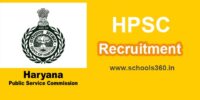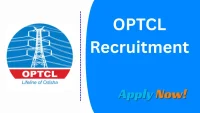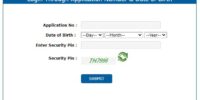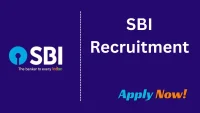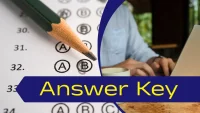On behalf of the University Grants Commission, the National Testing Agency (NTA) conducts the National Eligibility Test (UGC NET) twice a Year. UGC-NET is a test to determine the eligibility of Indian nationals for ‘award of Junior Research Fellowship and appointment as Assistant Professor’, ‘appointment as Assistant Professor and admission to Ph.D.’ and ‘admission to Ph.D. only’ in Indian universities and colleges.
As of now, UGC NET is conducted in 83 Subjects. The Exam Centers are spread across the country.
UGC NET Summary
| Exam Name | UGC NET |
| Conducted by | National Testing Agency (NTA) on behalf of UGC |
| Frequency of Exam | Twice a year |
| Mode of Examination | OMR Based mode |
| Number of Papers in Exam | Two (Paper 1 and Paper 2) |
| Total Number of Questions | Paper 1- 50 questions Paper 2- 100 questions |
| Total Marks | 300 marks (Paper 1- 100 marks, Paper 2- 200 marks) |
| Time Duration | 03 hours (180 minutes) without any break. All the questions are compulsory. |
UGC NET Exam Pattern
The Examinations will be conducted in OMR-based mode in June and December Sessions. The Test will consist of two papers, both of which will consist of objective-type, multiple-choice questions. The exam will last 03 hours (180 minutes) without any break. All the questions are compulsory.
- Each question carries 02 (two) marks.
- For each correct response, candidate will get 02 (two) marks.
- There is no negative marking for incorrect response.
- No marks will be given for questions un-answered/un-attempted/marked for Review.
- To answer a question, the candidate needs to choose one option as correct option.
- If a question is found to be incorrect/ambiguous or has multiple correct answers, only candidates who have attempted the question and chosen one of the correct answers will be given credit.
- If a question is found to be incorrect and dropped, two marks (+2) will be awarded only to those candidates who have attempted the question. The reason could be human error or technical error. Since there is no negative marking, the candidate needs to choose the most appropriate option as the correct answer.
| Paper | Marks | Number of Questions | MCQ |
| Paper-I | 100 | 50 | The questions in Paper I intend to assess the teaching/ research aptitude of the candidate. It will primarily be designed to test reasoning ability, reading comprehension, divergent thinking, and general awareness of the Candidate. |
| Paper-II | 200 | 100 | This is based on the subject selected by the candidate and will assess domain knowledge. |
UGC NET English Syllabus 2025
For candidates who have selected English as their Subject, Paper 2 will focus purely on the English Language and literature. Below is the unit-wise UGC NET English Syllabus 2024
Unit-wise UGC NET English Syllabus 2025
| Unit | Content |
| Unit –I | Drama |
| Unit –II | Poetry |
| Unit –III | Fiction, short story |
| Unit –IV | Non-Fictional Prose |
| Unit –V | Language: Basic concepts, theories and pedagogy. English in Use. |
| Unit –VI | English in India: history, evolution and futures |
| Unit –VII | Cultural Studies |
| Unit –VIII | Literary Criticism |
| Unit –IX | Literary Theory post World War II |
| Unit –X | Research Methods and Materials in English |
NOTE: The first four units must also be tested through comprehension passages to assess critical reading, critical thinking, and writing skills. These four units will cover all kinds of English literature.
Important Novels for UGC NET English Literature Exam
| Novel | Author |
|---|---|
| The Pilgrim’s Progress (1678) | John Bunyan |
| Robinson Crusoe(1719) | Daniel Defoe |
| Gulliver’s Travels (1726) | Jonathan Swift |
| Clarissa (1748) | Samuel Richardson |
| Tom Jones (1749) | Henry Fielding |
| The Life and Opinions of Tristram Shandy, Gentleman (1759) | Laurence Sterne |
| Emma (1816) | Jane Austen |
| Frankenstein (1818) | Mary Shelley |
| Nightmare Abbey (1818) | Thomas Love Peacock |
| The Narrative of Arthur Gordon Pym of Nantucket (1838) | Edgar Allan Poe |
| Sybil (1845) | Benjamin Disraeli |
| Jane Eyre (1847) | Charlotte Brontë |
| Wuthering Heights (1847) | Emily Brontë |
| Vanity Fair (1848) | William Thackeray |
| David Copperfield (1850) | Charles Dickens |
| The Scarlet Letter (1850) | Nathaniel Hawthorne |
| Moby-Dick (1851) | Herman Melville |
| Middlemarch (1871-2) | George Eliot |
| Three Men in a Boat (1889) | Jerome K Jerome |
| Ulysses (1922) | James Joyce |
| The Rainbow (1915) | DH Lawrence |





